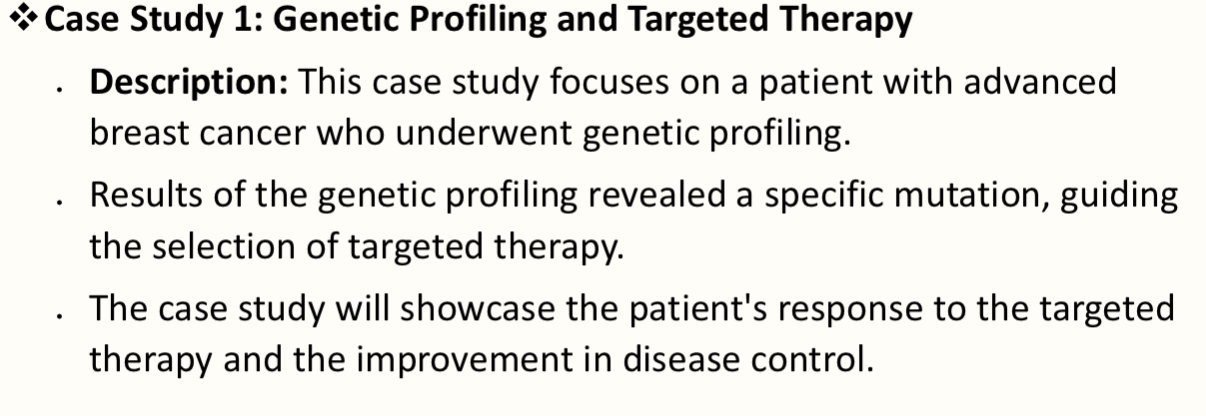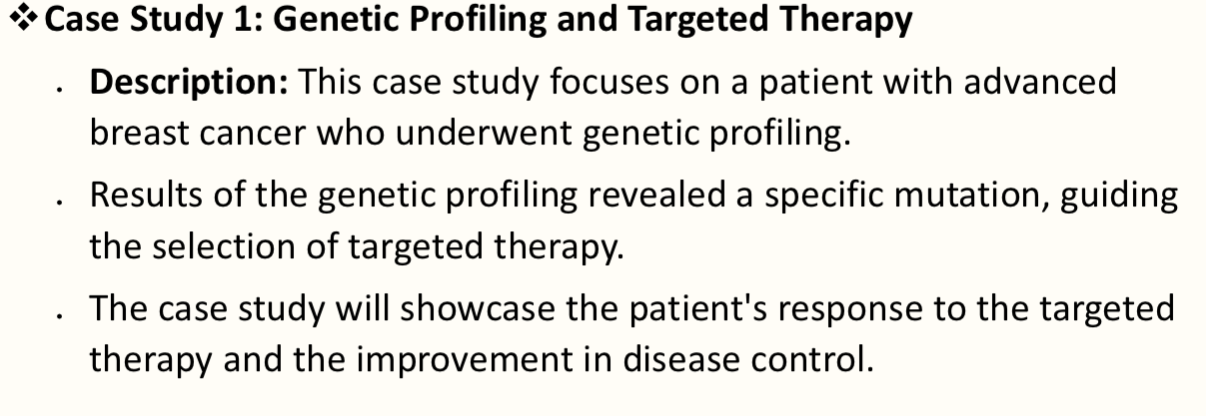Insights into breast cancer new
1/31
There's no tags or description
Looks like no tags are added yet.
Name | Mastery | Learn | Test | Matching | Spaced |
|---|
No study sessions yet.
32 Terms
What are some future research directions in breast cancer treatment?
Future research directions include precision medicine, genomic profiling, liquid biopsies, immunotherapy, and AI in treatment strategies.

What is the focus of Case Study 1 on Genetic Profiling and Targeted Therapy?
The case study focuses on a patient with advanced breast cancer who underwent genetic profiling.

What did the genetic profiling reveal in the case study?
The genetic profiling revealed a specific mutation, guiding the selection of targeted therapy.

What was demonstrated through the patient's treatment in the case study?
The case study showcases the patient's response to the targeted therapy and the improvement in disease control.

What is the focus of Case Study 2 on BRCA1/BRCA2 Mutation and Risk Management?
The case study centers around a patient with a strong family history of breast and ovarian cancer.

What result did genetic testing reveal in Case Study 2?
Genetic testing identified a BRCA1 mutation in the patient, leading to risk-reducing strategies and heightened surveillance.

How does Case Study 2 demonstrate the importance of early intervention?
The case study will demonstrate the impact of early intervention and personalized risk management on the patient's outcomes.